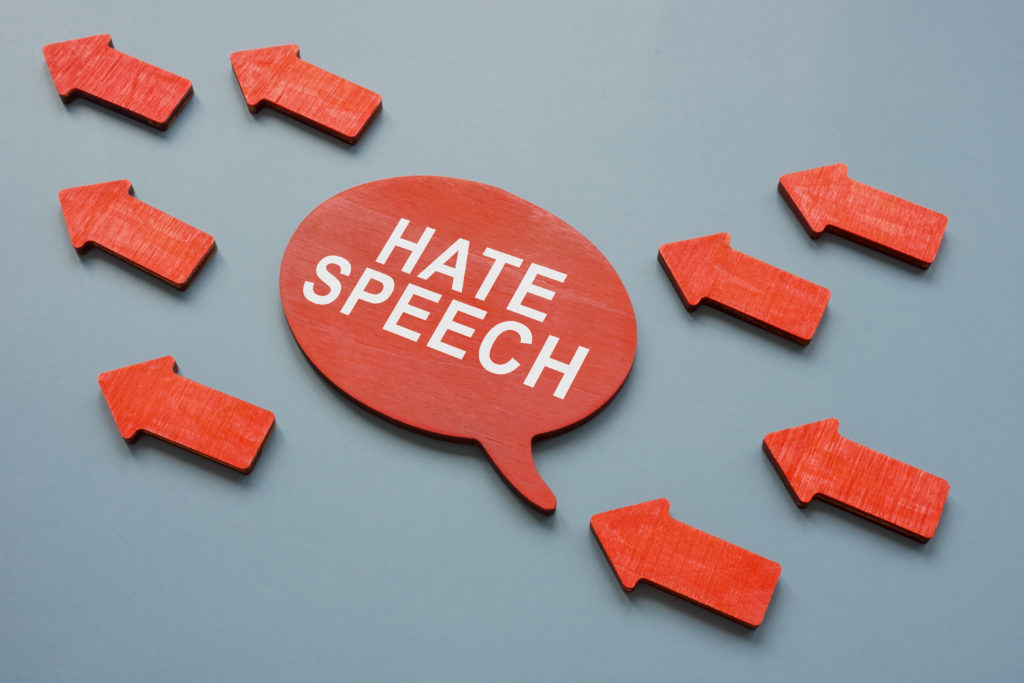Quick Hits
Daily brief research updates from the cognitive sciences

I am sure we all know that feeling of getting more irritable when temperatures rise. Well, now we have some fascinating research to show that that irascibility is also measurable in the amount of hate speech online.
We may assume that hate speech is simply the language of a number of opinionated and disagreeable folk. Sure, it is, but this shows that, seemingly, local temperatures magnify this effect.
So, what was this fascinating study?
This was conducted by Annika Stechemesser, et al. of the Potsdam Institute for Climate Impact Research by analysing over 4 billion tweets in the US using AI algorithms. From this they identified about 75 million English phrased hate tweets. They were then mapped to local temperatures and lo and behold a correlation was found.
What they found is that there is feel good window which corresponds to the minimum of hate tweets. That feel good window is between 12 and 21°C with the absolute minimum between 15 and 18°C. Temperatures either above or below, interestingly, led to an increase in hate tweets. Temperatures above 30°C are consistently linked to an increase in hate tweets across climate zones and socioeconomic differences including income, religious beliefs, or political preferences.
This is fascinating because it shows that local environmental conditions also impact hate behaviour – previously only considered as an attitude, personality, or belief problem. It also shows that changing climate dynamics with a global increase in extreme weather will likely also drive an increase in bad behaviour online and on social media.
Note also that this is not US specific with the same group of researchers also finding similar patterns in Europe.
This is important to note because this behaviour will likely occur in all social situations, in business and in society. We seem to have an optimal window and out of this things get, well, heated.

Andy Habermacher
Andy is author of leading brains Review, Neuroleadership, and multiple other books. He has been intensively involved in writing and research into neuroleadership and is considered one of Europe’s leading experts. He is also a well-known public speaker, speaking on the brain and human behaviour.
Andy is also a masters athlete (middle distance running) and competes regularly at international competitions (and holds a few national records in his age category).
References
Annika Stechemesser, Anders Levermann, Leonie Wenz.
Temperature impacts on hate speech online: evidence from 4 billion geolocated tweets from the USA.
The Lancet Planetary Health, 2022; 6 (9): e714
DOI: 10.1016/S2542-5196(22)00173-5
A Stechemesser, L Wenz, M Kotz, A Levermann.
Strong increase of racist tweets outside of climate comfort zone in Europe.
Environmental Research Letters, 2021; 16 (11): 114001
DOI: 10.1088/1748-9326/ac28b3
More Quick Hits
Brain Scans Can Predict Your Political Affiliation
Quick HitsDaily brief research updates from the cognitive sciences rain scanning of political partisans is not new and it has long been reported that brain scans can predict political affiliation. But those studies were scans of political partisans...
Children with Same-Sex Parents Are Socially Well-Adjusted
Quick HitDaily brief research updates from the cognitive sciences his is not the first study to report that children of same-sex parents are well adjusted, there are plenty, but it is one of the first to be representative and hence gives some...
Simple Exposure to New Things Makes Your Brain Ready to Learn
ouldn’t it be great if we could learn things with no effort? Well, actually we often do, and children learn vast quantities of information, and knowledge with little to no effort – think of how well we learn languages which become fiendishly...
So, Can Cranberries Improve Memory?
tend to be hesitant to report on studies of single foods doing amazing things (because many do), but this piece of research still caught my eye. So, what did this group of researchers from the University of East Anglia find? Well, they...
The Real Problem with Social Media: It Induces Dissociative States
Quick HitsDaily brief research updates from the cognitive sciences ocial media seems to hijack our brains – or at least according to popular narratives. Most of us have experienced this where you get stuck in an endless stream of content,...
Adventurous Play Boosts Mental Resilience in Kids
o, a simple cheap way to help your kids improve all life skills and strengthen mental wellbeing. Too good to be true? Well, this piece of research, just out, finds a fascinating correlation with mental health and kids. This correlation was...






